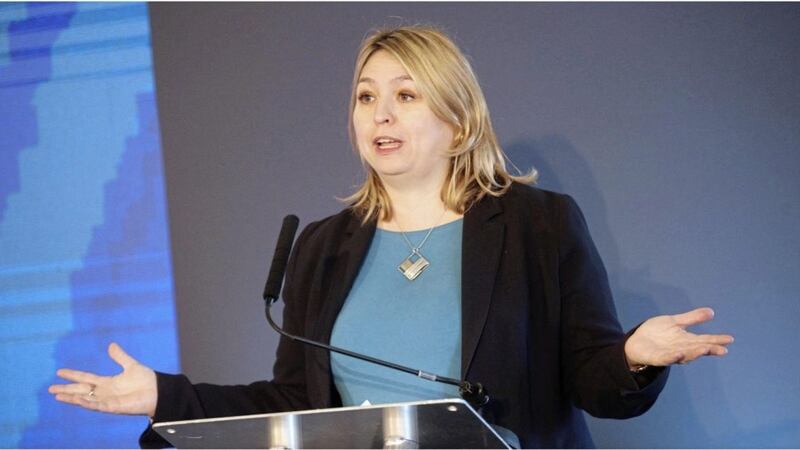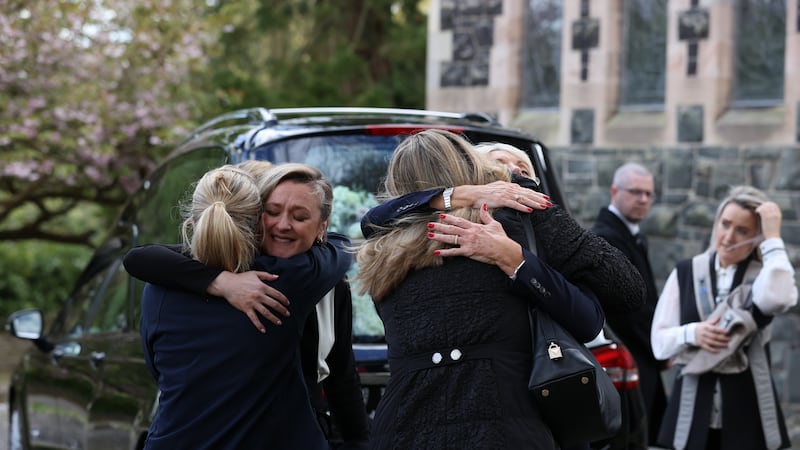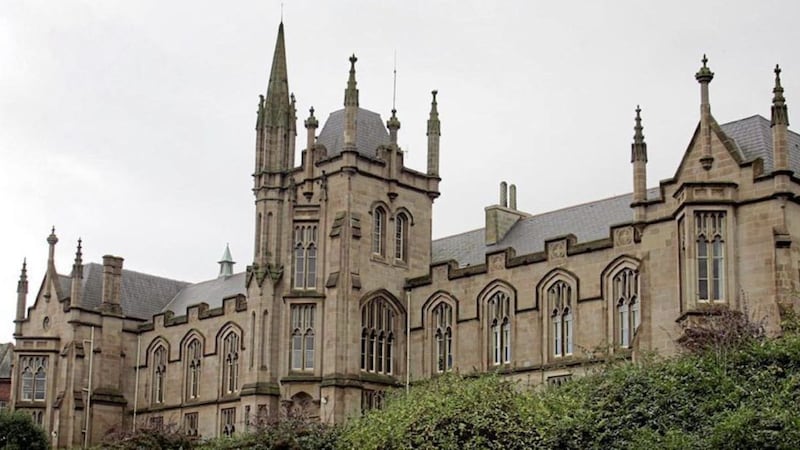ANYONE who pays too much attention to what secretary of state Karen Bradley says runs the immediate risk of identifying themselves as a dunce.
Although her public appearances and interviews are judiciously rationed, Mrs Bradley comes across as a perfectly pleasant person. But have the lights in Hillsborough Castle ever flickered more dimly?
Perhaps dispatching a factotum with such a slender understanding of their brief and an empty hinterland was Theresa May's quiet revenge against the Northern Ireland electorate for sending 10 obnoxious DUP MPs in her direction as well as the ignominy of having to buy their conditional support.
Even so, it is quite something for a professional politician - even an English one - to have no clue about the dynamics within and between unionist and nationalist politics, as she confessed in that still-gobsmacking interview with The House magazine.
It is almost enough to make you wistful for the halcyon days of James Brokenshire and Theresa Villiers. Almost.
Mrs Bradley was at it again this week, with more bizarre claptrap when she fielded questions around Brexit at a gathering of the British Irish Parliamentary Assembly in London.
"I personally think, from my knocking on doors, there would be a bigger vote for Leave," pronounced Theresa's Revenge, who sounded as if she had been getting in some practice for the trick or treat season.
Presumably these doors she knocked were not in Northern Ireland, where most voters wish to remain in the EU, but in her Staffordshire Moorlands constituency in England; however, please get in touch if Mrs Bradley has knocked your door and quizzed you about Brexit or the backstop.
She went on to assert, though without any apparent evidence, that 60 per cent of the unionist community had voted to leave the EU in the 2016 referendum.
Nationalists as well as - to use Karen Bradley's figures - 40 per cent of unionists, never mind the growing numbers who identify as 'neither', could be forgiven for concluding that their concerns don't feature in the government's thinking
Warming to her theme, she continued: "There are two communities in Northern Ireland, and much of what the European Union has put forward in terms of suggestions around the backstop are not acceptable to the unionist community in Northern Ireland, and they aren't acceptable to the British government, so that's why we are working to find a backstop that works for everyone."
These remarks help illustrate the extent to which the government's thinking on Brexit has been infected by its dalliance with the DUP and its brand of and oracular rhodomontade; it's there in the perpetuation of the "two communities" narrative, and the suggestion that the "unionist community" - which, for the purposes of Mrs May's government, is the DUP and its particular view of unionism - effectively holds a veto on the backstop and thus future border arrangements.
Nationalists as well as - to use Mrs Bradley's figures - 40 per cent of unionists, never mind the growing numbers who identify as 'neither', could be forgiven for concluding that their concerns don't feature in the government's thinking.
The secretary of state also gave a speech at the British Irish Parliamentary Assembly.
Beyond the platitudes about golf and the usual nonsense about respecting the Good Friday Agreement, she also referenced the magical legislation that was fast-tracked through Parliament this week.
This seems to be enormously ill-conceived. Suspending assembly elections is just one of the anti-democratic measures it contains. When can that ever be a good idea?
In a further blow to common sense, Theresa's Revenge said the legislation would "give greater clarity and certainty to enable Northern Ireland departments to continue to take decisions in the public interest and to ensure the continued delivery of public services".
That the civil service should act in the public interest is a neat idea, though one whose credibility has been stretched by a series of revelations in the RHI inquiry.
Fostering a culture intended to frustrate transparency - facilitating politicians and Spads by setting aside the inconvenience of recording minutes and stymieing freedom of information requests, for example - is the antithesis of public service.
It would be a mite easier to have some confidence in the upper echelons of the civil service as Mrs Bradley's guardians of the public interest if there was evidence of these issues and others being thoroughly addressed, rather than only being acknowledged once they have been dragged into the open at a public inquiry.
As it is, taxpayers continue to be left in the invidious position of hoping for the best.
'Hoping for the best' is just about the most upbeat assessment we can have in these politically straitened times of Brexit and no assembly. How depressing.









